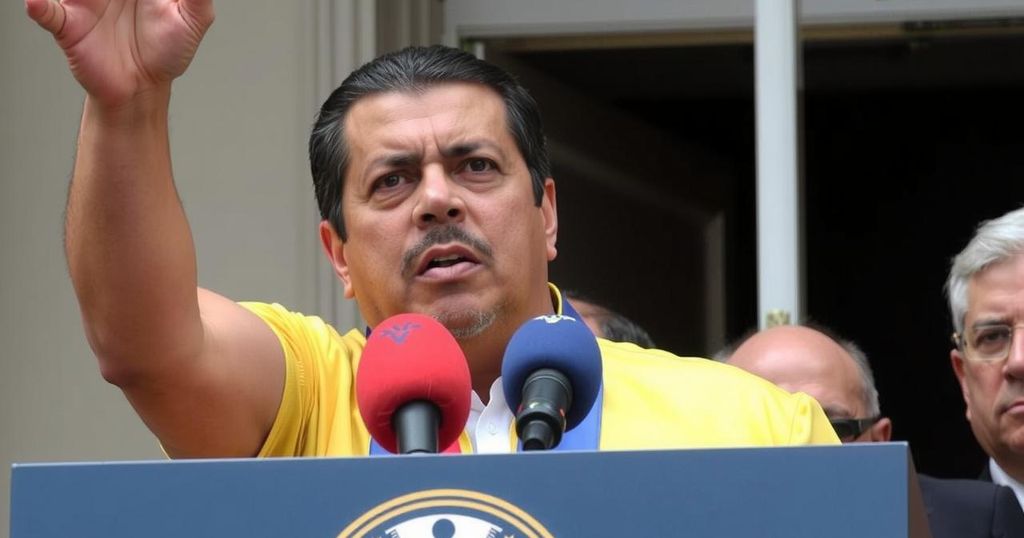Nicolás Maduro to Be Sworn in Amid Election Controversies and Protests

Nicolás Maduro is set to be sworn in for a third term on January 10, 2025, despite evidence suggesting electoral fraud favoring opposition leader Edmundo González. Protests against Maduro’s re-election have escalated, with María Corina Machado detained during demonstrations. International condemnation has emerged over Venezuela’s repressive measures against dissent and the lack of electoral transparency, leading to a volatile political landscape ahead of the inauguration.
Nicolás Maduro, President of Venezuela, is set to be sworn in for a third term on January 10, 2025, despite serious allegations of electoral fraud and widespread protests against his administration. Following a disputed election in July 2024, where opposition claims indicate their candidate, Edmundo González, actually won, Maduro’s government faces accusations of brutal repression. Notably, opposition leader María Corina Machado was briefly detained during a demonstration aimed at contesting Maduro’s legitimacy. While Maduro’s supporters refute accusations of misconduct, international voices have condemned the situation, highlighting the harsh response to dissent and the questionable integrity of the electoral process.
This contentious inauguration is overshadowed by the recent political climate in Venezuela, where repression of opposition has intensified. The electoral authorities, tied to Maduro’s party, quickly declared him the victor after polls closed but failed to disclose detailed vote counts that would substantiate the results. This lack of transparency spurred outrage from opposition supporters, who believe the documented vote counts from electronic machines demonstrate a significant victory for González over Maduro. Consequently, Maduro requested an audit from a court that aligned with his party, which merely reaffirmed his victory without presenting conclusive evidence, further fuelling skepticism about the electoral integrity.
In response to the protests and the conflict surrounding the election results, the Venezuelan government has conducted arrests of over 2,000 demonstrators with reports of violence against detainees. President-elect Donald Trump publicly backed the opposition, emphasizing the importance of protecting those advocating for democratic freedoms. Amid these turbulent developments, it remains uncertain whether international allies will attend Maduro’s forthcoming inauguration, a stark departure from prior events marked by foreign dignitaries’ presence. Additionally, González’s situation remains tense as he faces implications of arrest if he returns to Venezuela, exacerbating the plight of his family amid government intimidation.
The political environment in Venezuela is marked by the dominance of Nicolás Maduro, who has faced relentless opposition since his initial rise to power. Following a series of elections marred by accusations of fraud and repression, Maduro’s third term inauguration comes amid clear evidence suggesting substantial dissent against his presidency. The opposition, particularly figures such as María Corina Machado and Edmundo González, have mobilized protests aiming to challenge the election’s legitimacy and demand a peaceful transition of power. As the international community closely observes, human rights violations and the suppression of opposition voices have culminated in widespread critiques of Maduro’s administration.
In summary, Nicolás Maduro’s impending inauguration is overshadowed by accusations of electoral fraud and significant civil unrest. Despite the Maduro government’s assertions of victory, credible opposition claims and recent detentions provoke questions regarding the legitimacy of the electoral process. As the situation unfolds, the international community continues to call attention to the Venezuelan government’s suppression of dissent, underscoring the urgent need for political reform and respect for human rights in the nation.
Original Source: apnews.com








